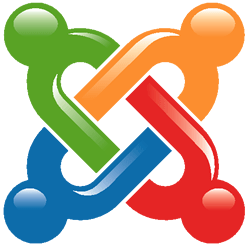 Joomla is what is known as a content management system. It’s used to create, edit, manage and publish all sorts of content on your website. Joomla based websites have that highly professional look and often feature very good design. It’s not as developer-oriented as Drupal is, yet it has far more complex development options when compared to WordPress. But just like all content management systems available, it has its advantages and disadvantages, most of which will be discussed in this article.
Joomla is what is known as a content management system. It’s used to create, edit, manage and publish all sorts of content on your website. Joomla based websites have that highly professional look and often feature very good design. It’s not as developer-oriented as Drupal is, yet it has far more complex development options when compared to WordPress. But just like all content management systems available, it has its advantages and disadvantages, most of which will be discussed in this article.
Pros of using Joomla content management system
1. Open Source
This is one of the biggest advantages of using Joomla. The source code is available for free for all those who wish to distribute and modify it. You might not see the significance here, but a free and open-source code means that there aren’t any special licensing fees involved with using, modifying and sharing it. Another great benefit to using an open-source content management is that it’s driven by the community using it, instead of being driven by profit margins.
2. Accessibility
The fact that it resembles a word processor more than it does a classic coding program makes Joomla fairly easy to use, even for those who have no prior HTML or programming knowledge. Even a layman can follow the steps, install it on a server and start creating and managing content in no time. This ease of use and the lack of actual coding is what’s making Joomla grow popular among the content management systems currently available on the internet.
3. Usability
As a CMS, Joomla can be used to make all sorts of websites, ranging from small, single page websites, personal blogs, e-commerce websites to full-blown corporate websites. This versatility is coupled with numerous features, options, and modules which allow for a fully customized browsing experience. Not to mention that a number of government websites and applications, organizational websites and even some online magazines and large communities are all created and managed using Joomla. This is because Joomla is more than just a simple CMS, it’s also a complete framework on its own.
4. Templates and themes
Joomla template represents the shell of your website. They consist of a sequence of files which determine how your website looks and feels, once you have installed your modules and added the content. Some or more rigid, while others allow for a greater control over the layout and user options. Some even come with expanded back-end options, making them ideal for the power users. Installing a Joomla template is fairly simple and almost all of them come with easy-to-use instructions.
5. Easy migration and good customer support
Joomla as a content management system allows for an easy transfer from one server to another. Even if you experience any difficulties in the process, Joomla has an excellent community behind it willing to help you at every part of the way. All those who experience any technical problems or have any questions regarding the maintenance of their Joomla websites can simply submit a report or ask a question on one of the forums dedicated to both Joomla enthusiasts and season professionals.
Cons of using Joomla content management system
1. Not enough modules are being developed
Currently, there are only a couple of additional modules available for Joomla, due to a fairly limited marketplace. Customizing your website is still really easy, especially with all the available pre-made templates. However, finding a specific module you need a simply installing and using it like you would on WordPress may prove itself to be difficult. The modules and plugins that are available often have to be paid for, but there are scripts you can find online which often contain just as many options as the paid plugins, only for free.
2. Compatibility issues with the extensions
Installing a good share of extensions on Joomla may lead to issues, as they often don’t combine well with each other. Setting up a specific feature could cause compatibility issues with another and can even lead to losing access to the full functionality of the plugin. This is where a solid knowledge of Joomla really comes in handy, as some of these repairs may call for extensive knowledge of PHP code in order to make any real progress with your website.
When compared to other content management systems, Joomla can use up a lot of server resources, which means that you can successfully run only a couple of websites. But even with only a few websites, some users have reported experiencing rather slow loading times. Furthermore, Joomla is somewhat SEO-unfriendly, coming out the box. According to expert Joomla developers you should resolve this issue by installing specific Joomla SEO modules or using the SEF plugin. Some users have even complained that their Joomla websites can’t seem to handle more than 50,000 unique visitors a day, so it’s important to have this in mind if you’re planning on a site that will get a lot of traffic.
If you are looking for more functionality than WordPress has to offer but don’t possess the technical know-how required to run a Drupal, then Joomla is probably the best choice for you. Its advantage over the competition is that it’s open-source, free and relatively easy to use for the average user. It resembles are word processor more than it does an actual coding program and provides the user with an excellent content management solution for both small and large websites.
